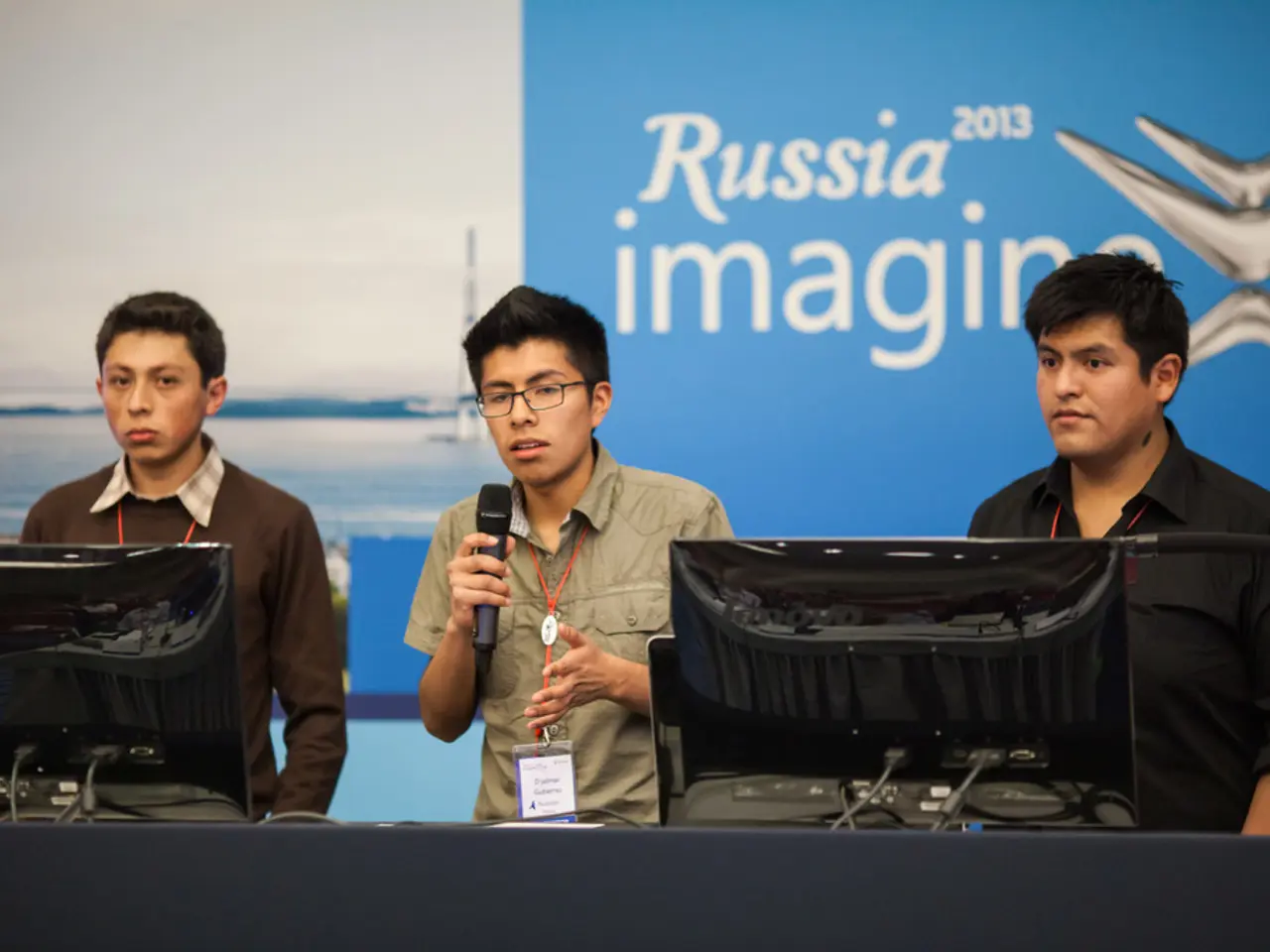Struggling economy eases shortage of information technology workers
In 2023, Germany faced a significant shortage of IT specialists, with around 149,000 vacancies remaining unfilled [1]. This structural deficit is projected to persist, with approximately 18,000 professionals needed annually between 2024 and 2028 in the tech sector alone [1]. The high demand for skilled IT workers is driven by rapid technological evolution, high attrition rates, intense competition among employers, and a persistent gap between employer requirements and available talent [1].
Efforts to address this shortage have included streamlining visa requirements to attract international IT talent. Updates to the IT Specialist Visa and the EU Blue Card now require meeting criteria such as a minimum salary threshold (€43,759.80 in 2025) and relevant professional experience [2][3]. However, these policies also present challenges, with visa eligibility and bureaucratic complexities potentially slowing the inflow of needed IT professionals.
The impact of Artificial Intelligence (AI) on the IT job market in Germany is significant but complex. AI-driven tools like no-code development platforms help bridge the talent gap by allowing non-technical users to contribute to software creation, easing pressure on specialist developers [1]. At the same time, AI projects increase the demand for IT specialists skilled in data science, machine learning, and AI implementation strategies. This reshaping of roles and skill demands maintains strong demand for skilled IT professionals, as AI both alleviates some pressures and increases demand for new skill sets in AI-related roles [1][2].
Bitkom, the digital industry association, reports that 85 percent of surveyed companies with at least three employees still complain about a shortage of IT specialists [1]. Ralf Wintergerst, Bitkom's President, attributes the hesitancy in hiring new IT staff to economic slowdown and geopolitical uncertainties [1]. Despite these challenges, Wintergerst emphasizes that the digitalization of companies, administrations, and authorities requires more IT experts, not fewer [1].
The demographic development in the IT sector presents additional challenges. Many Baby Boomer IT specialists are retiring, and fewer young people are taking their place [1]. This trend has led some companies to consider bringing IT specialists from the USA to Germany, with 21 percent seeing this as a possibility [1]. However, only 4 percent of surveyed companies anticipate any easing of the shortage of IT specialists [1].
The political situation may improve the chances of German companies in the competition for international IT specialists. Forty-five percent of companies say that the USA has lost attractiveness for foreign IT specialists due to President Trump's policies [1]. In contrast, 27 percent believe it is now easier to bring IT specialists from non-EU countries to Germany instead of the USA [1].
In summary, while the number of unfilled IT positions in Germany has decreased from 149,000 two years ago to around 109,000 currently, the persistent high demand for skilled IT workers remains a significant challenge. Streamlined immigration rules attempt to attract international IT talent but involve salary, experience, and documentation hurdles that slow talent inflow. AI advances both alleviate some pressures (e.g., no-code tools) and increase demand for new skill sets in AI-related roles, so it reshapes rather than reduces the IT skills shortage. Only four percent of surveyed companies see an oversupply of IT specialists, and ten percent find the supply adequate. Around one in four companies (27 percent) expects to cut jobs through AI, highlighting the need for a workforce with the skills to navigate this technological revolution.
- Considering the current situation, the finance industry in Germany could potentially benefit from investing in training programs or partnerships with educational institutions to develop a domestic pool of IT specialists.
- As Germany faces a continued shortage of IT specialists, the technology sector, in particular, could see progress by partnering with artificial-intelligence companies to enhance their recruitment processes, attracting a wider talent pool and streamlining the hiring of suitable candidates.




